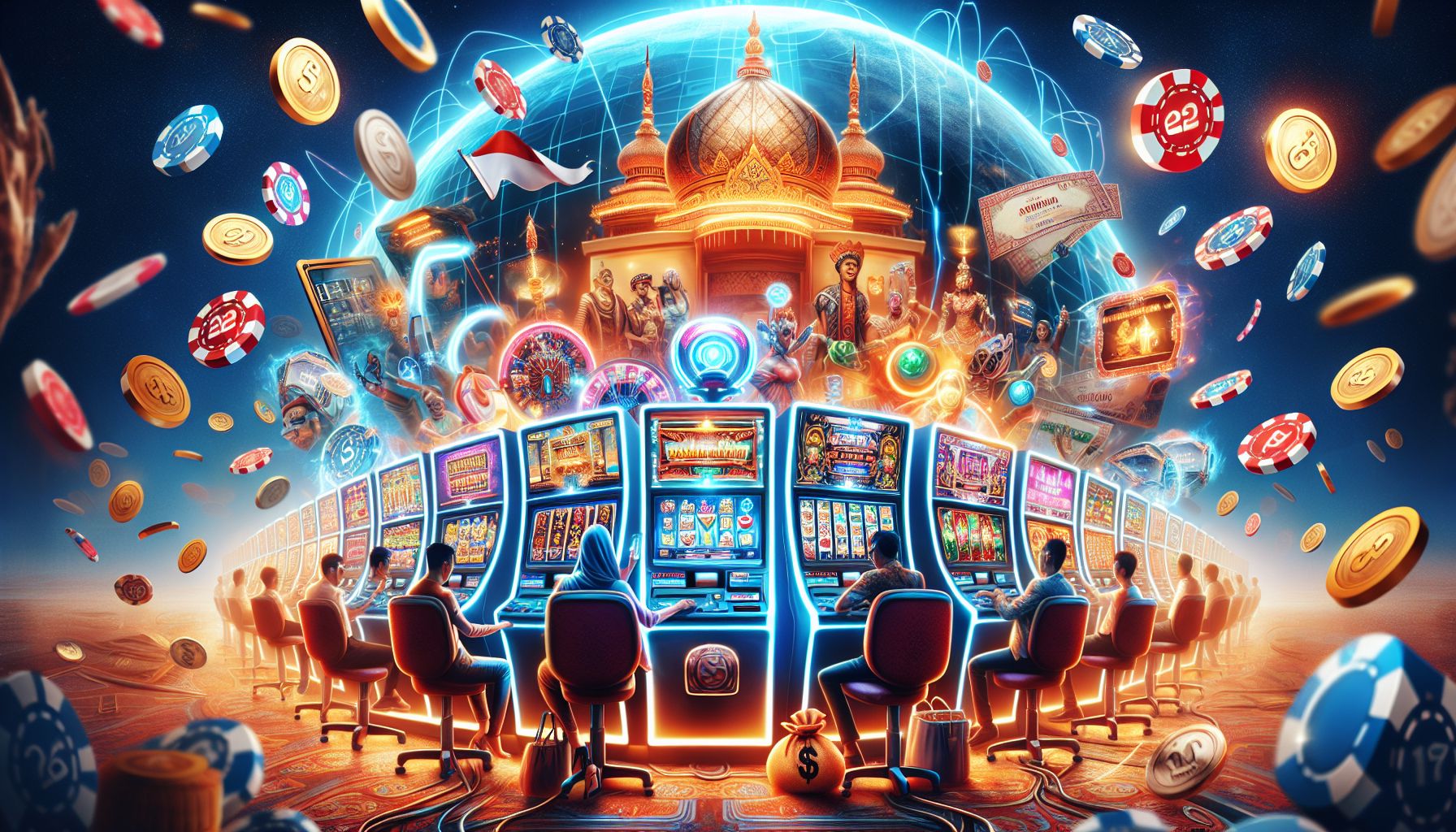In the realm of gambling and entertainment, few experiences rival the excitement and thrill of slot games. These iconic machines have held a special place in the hearts of players for decades, captivating audiences with their colorful reels, enticing sound effects, and the promise of big wins. But beyond the surface level of flashing lights and spinning reels lies a world of innovation, psychology, and timeless appeal. Let’s delve deeper into the unique allure of slot deposit qris tanpa potongan games, exploring their evolution, impact, and enduring popularity.
The Evolution of Slot Games: The history of slot games traces back to the late 19th century, with the invention of the first mechanical slot machine by Charles August Fey. Dubbed the “Liberty Bell,” this rudimentary device featured three spinning reels adorned with symbols such as horseshoes, diamonds, spades, hearts, and the Liberty Bell itself. Despite its simplicity, the Liberty Bell laid the groundwork for what would become a global phenomenon.
Over the years, slot machines underwent a series of transformations, transitioning from mechanical contraptions to electronic and eventually digital marvels. The introduction of microchips in the 1980s revolutionized the industry, enabling developers to incorporate advanced features such as random number generators (RNGs), multiple paylines, bonus rounds, and elaborate themes. Today, slot games come in various forms, from traditional three-reel machines to sophisticated video slots with intricate graphics and immersive gameplay.
The Psychology of Slot Games: At the core of slot games’ appeal lies the intricate interplay of psychology and design. Developers employ a myriad of techniques to engage players and keep them coming back for more. One such technique is the concept of “near misses,” where the reels stop just short of a winning combination, creating a sense of anticipation and excitement. Studies have shown that these near misses activate the same reward pathways in the brain as actual wins, leading to prolonged play sessions.
Furthermore, slot games often incorporate elements of gamification, such as leveling up, unlocking achievements, and participating in tournaments, to enhance player engagement. These features tap into innate human desires for progression, competition, and social interaction, fostering a sense of immersion and investment in the game.
The Social Impact of Slot Games: Beyond their entertainment value, slot games have significant social and economic implications. In many jurisdictions, casinos serve as vital contributors to local economies, generating jobs, tax revenue, and tourism. However, concerns have been raised about the potential negative consequences of gambling, including addiction, financial hardship, and social disintegration.
To mitigate these risks, responsible gambling measures such as self-exclusion programs, mandatory age verification, and limits on betting amounts have been implemented. Additionally, advancements in technology have paved the way for safer and more transparent gaming experiences, with features like real-time analytics and player tracking enabling operators to identify and assist at-risk individuals.
The Future of Slot Games: As technology continues to evolve, the future of slot games promises even more innovation and excitement. Virtual reality (VR) and augmented reality (AR) technologies hold the potential to transport players to immersive digital worlds, where they can interact with their favorite games in entirely new ways. Furthermore, blockchain technology offers solutions to issues of fairness and transparency, ensuring that outcomes are provably random and tamper-proof.
Moreover, as society becomes increasingly digitized, the rise of online casinos and mobile gaming platforms is reshaping the landscape of slot games. Players now have access to an unprecedented variety of titles from the comfort of their own homes, with features like instant play, live dealer games, and cryptocurrency payments enhancing convenience and accessibility.


